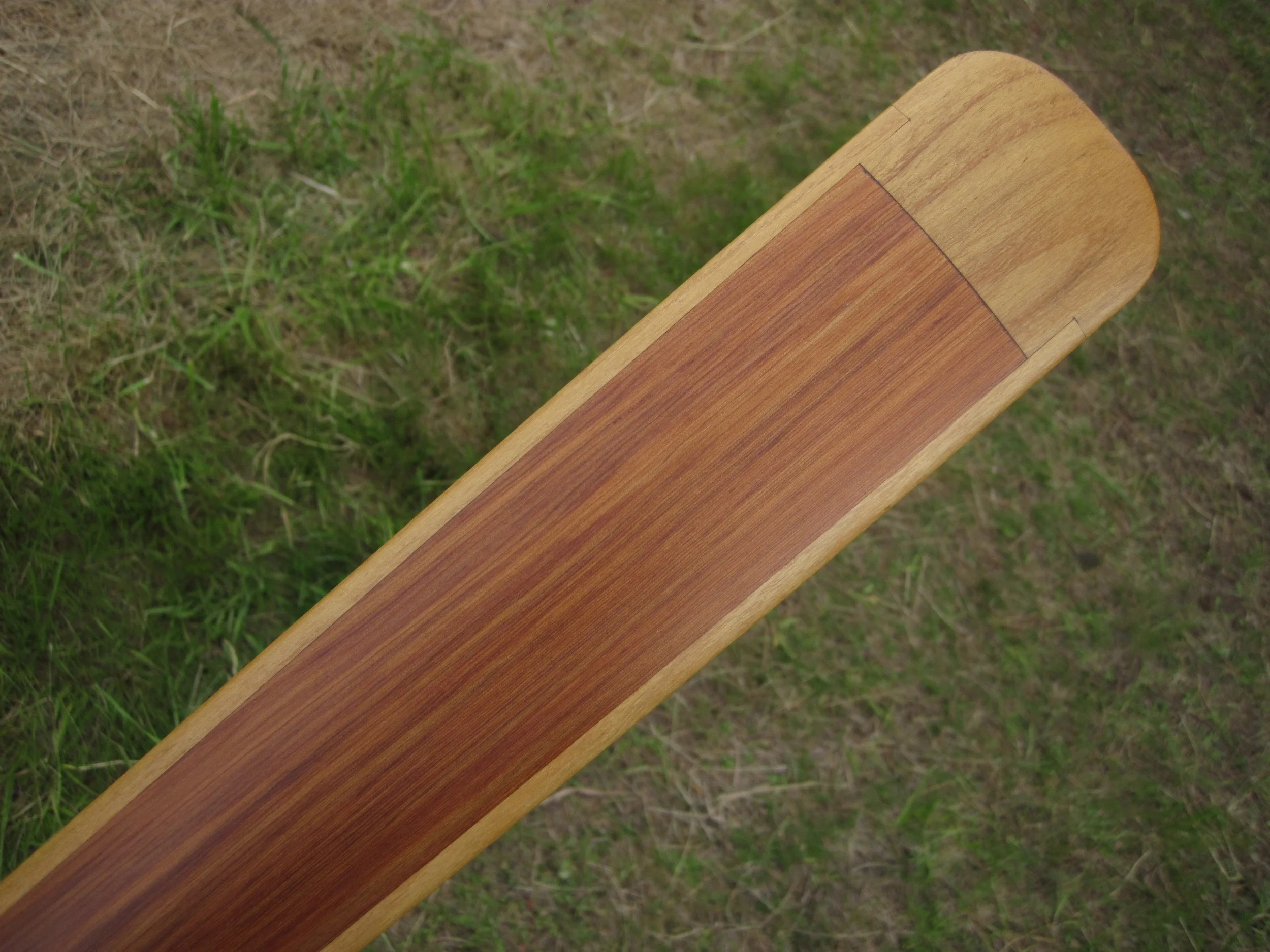Choosing a paddle
On this page you see four configurations offered and their prices. Prices INCLUDE shipping to the Lower 48 from Oregon.
plain western red cedar, $249
The lightest and most affordable of the lot, a plain cedar paddle has a lot going for it. Of course the principal disadvantage of plain cedar versus an armored paddle is the tip can split if used roughly (guilty). To combat this, many paddle builders leave the tip of a plain cedar paddle quite thick; I won't do this because it sacrifices the performance I want in a paddle. (This was the inspiration for my black locust-armored paddles. I wanted a tough paddle with a thin tip.) My personal on-deck spare is often plain cedar, and its a great choice for someone who wants the sweetest swinging paddle but is easy on gear. Its also a good option for paddles that see a lot of water and sand, but not much else; like surfing onto sandy beaches. Its just as strong as my other offerings for that.
Cedar with black locust tips, $299
Functionally, the locust tipped paddle has 98% of the plain cedar paddle's sweetness. Its just tougher. I think this could be the most sensible configuration I offer. The small locust tip adds negligible weight, but allows you to save your boat from that barnacle encrusted rock without risking your paddle too.
Black locust tips and edges, $339
Now this is a different class of paddle, a paddle that can handle ME. I'm tough on paddles. Not only do I expect them to save my boat from all manner of poor decision making, I use it as a walking stick while wading, as a pole to pitch a tarp , and even as one of three poles to suspend a pot over the fire. I wouldn't recommend that last one, but the point is this is a paddle you can rely on. The locust adds a weight penalty of about 4 to 5 ounces, but hey if you want to be a brute you gotta pay the price. A great 30 ounce example with 3 inch blades is my personal go-to paddle.




